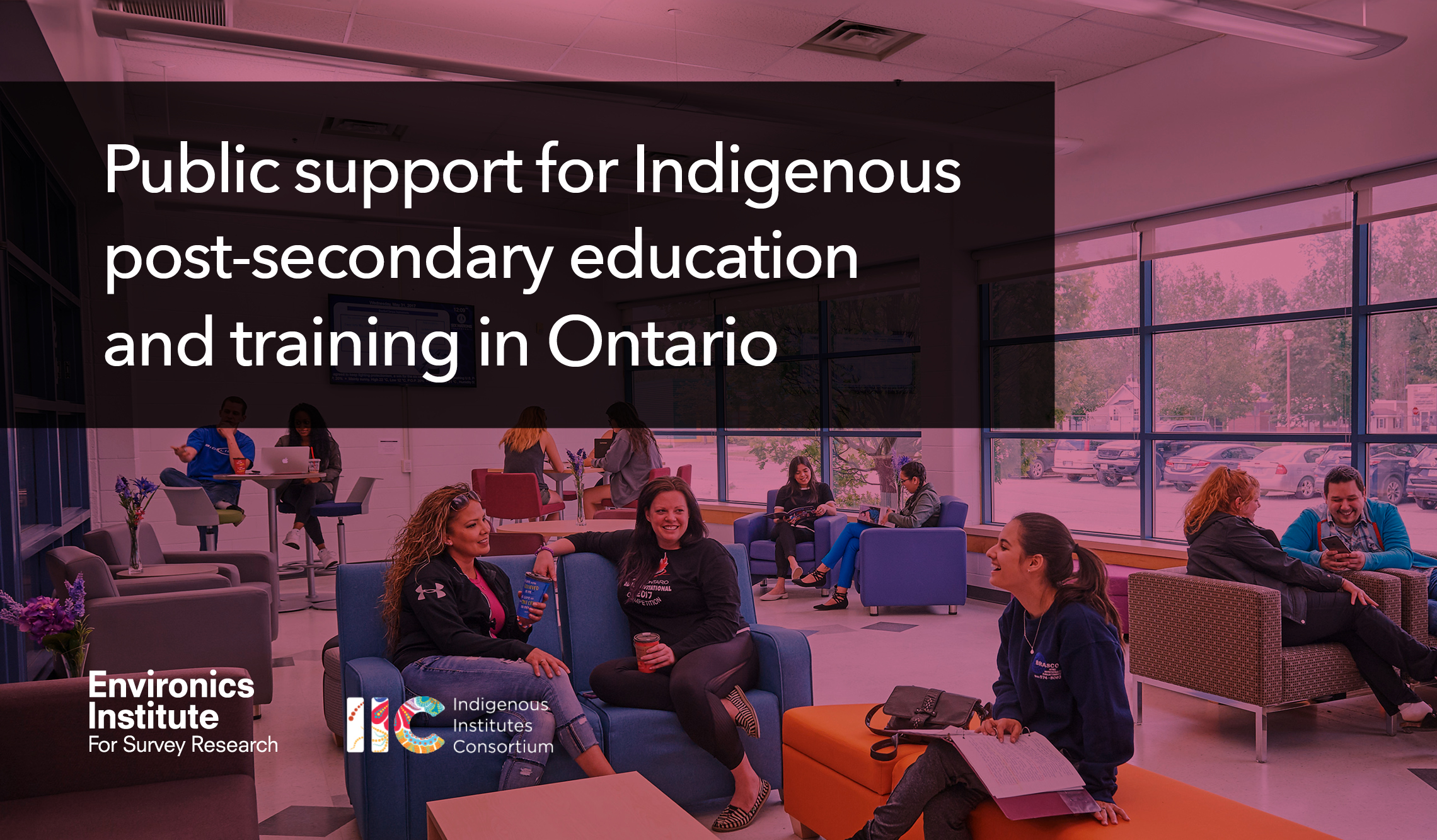Public support for Indigenous post-secondary education and training in Ontario

Public support for Indigenous post-secondary education and training in Ontario
The Calls to Action issued in 2015 by the Truth and Reconciliation Commission of Canada included a number of items relating to education. These included calls for measures to eliminate gaps in educational attainment between Indigenous Peoples and non-Indigenous people in Canada, to provide adequate and equitable funding of education for Indigenous students, and to develop culturally appropriate educational curricula. The expansion of fully-funded and culturally appropriate education and training opportunities for Indigenous Peoples is a key component of a comprehensive approach to addressing historical wrongs, closing current gaps in well-being between Indigenous Peoples and non-Indigenous people, and securing a brighter future for all peoples in Canada.
These educational goals are part of the mandate of Ontario’s Indigenous Institutes. These Indigenous-owned and led post-secondary institutes are grounded in Indigenous cultures, and serve to expand the educational opportunities and options available to Indigenous learners in the province.
The Indigenous Institutes Consortium, which represents seven of these institutes, was interested in understanding more about how Ontarians see these issues. To do so, the Consortium partnered with the Environics Institute for Survey Research to investigate public attitudes in the province toward reconciliation and relations with Indigenous Peoples in general, and more specifically toward the objectives of improving education and training outcomes for Indigenous learners. The main results of this study are presented in this report.
The study found broad public support for improving the funding, delivery and outcomes of education and training for Indigenous Peoples living in the province.
Key findings
- Thinking about the future of the province, 85 percent of Ontarians say it is very or somewhat important to help Indigenous Institutes to achieve the goal of allowing Indigenous students an opportunity to learn in an environment free from discrimination.
- 84 percent say that, to advance reconciliation between Indigenous Peoples and non-Indigenous people, it should be either a high or medium priority for all of Canada to ensure that Indigenous Peoples have the same opportunities as other Canadians to access and succeed in education.
- 72 percent believe that increasing the number of Indigenous students who graduate with a college diploma or university degree would havea very or somewhat positive impact on Canada’s economy.
About the survey
The Ontarians on Reconciliation 2024 Survey was conducted by the Environics Institute, in partnership with the Indigenous Institutes Consortium. The survey of 1,408 adult residents of Ontario was conducted online between August 7 and 23, 2024. The sample includes 239 people who identify as Indigenous and 1,169 who are non-Indigenous. The survey results are weighted by gender, age, region of Ontario, education and Indigenous identity so as to be representative of the actual population of the province. Results for Indigenous respondents, when reported separately, are unweighted and cannot be said to be fully representative of all Indigenous Peoples in the province.
For more information, contact the Environics Institute or Dr. Andrew Parkin.
Survey materials
Final report: Public Support for Indigenous Post-secondary Education and Training in Ontario
Detailed data tables (full sample - weighted)
Detailed data tables (Indigenous respondents only - unweighted)
Like what you're reading? With our bi-monthly e-newsletter, you can receive even more with the latest details on current projects, news, and events at the institute.
Subscribe